Sharath Sadashivan
VP of Solutions Delivery
Kaitlyn Hickman
Program Operations Lead
Migrating data from Oracle to a new database system presents organizations with significant risks and financial challenges. However, with careful planning and the strategic use of database migration tools from MDACA, these risks can be effectively mitigated. In this article, we review potential risks associated with migrating off Oracle, the strategies to minimize them, and the invaluable role of database migration tools in achieving a seamless and successful migration process.
Risks Associated with Migrating Off Oracle
Migrating data from Oracle to a new database system involves several inherent risks that can impact the organization’s operations. Some of these risks include:
- Data Integrity: Ensuring accuracy and reliability of data during the migration process is paramount. Any discrepancies or data corruption can lead to erroneous decision-making and operational disruptions.
- Data Loss: The risk of data loss looms during migration if proper backup and recovery procedures are not in place. Losing critical data can have significant consequences for the business.
- Downtime and Business Continuity: The migration process can cause downtime for applications relying on Oracle, affecting productivity and customer experience. Ensuring business continuity during this period is a significant challenge.
- Performance Issues: The new database may not exhibit the same performance characteristics as Oracle, necessitating optimization efforts for queries and database configurations.
- Compatibility and Data Mapping: Specific features or data types used in Oracle may not be directly compatible with the new database, necessitating accurate data mapping and transformation.
Mitigation Strategies for Data Migration Risks
To ensure a smooth and successful migration, organizations can implement several strategies to mitigate the associated risks:
- Thorough Planning: Develop a comprehensive migration plan encompassing timelines, responsibilities, data validation, and testing procedures.
- Data Backup and Recovery: Conduct complete backups of the Oracle database before migration to safeguard against data loss.
- Testing and Validation: Create a testing environment to replicate the production setup and perform extensive testing to identify and address issues proactively.
- Expertise and Training: Engage experienced database administrators and migration specialists, and train staff to handle the new database.
- Security and Access Control: Maintain data security measures throughout migration, ensuring appropriate access controls and encryption.
- Incremental Migration: Opt for a gradual approach, migrating data in smaller batches to minimize downtime and improve error detection.
Streamline Data Migration tasks with the MDACA Data Fabric suite of tools
To further reduce risks and enhance the efficiency of the migration process, organizations can leverage advanced database migration tools offered by MDACA. These tools provide various benefits, including:
- Data Profiling and Validation: MDACA Data Quality (DQ) Monitor can analyze and profile data from Oracle to identify potential data quality issues, ensuring data integrity during the migration.
- Schema and Data Mapping: MDACA DB Migration Agent/Server facilitates automated schema and data mapping between Oracle and the target database, reducing manual errors and improving accuracy.
- Compatibility Checks: MDACA Data Explorer with Advanced SQL-Translation JDBC/ODBC Driver can assess the compatibility of database objects and SQL queries between Oracle and the new system, streamlining the migration process.
- Data Transformation: MDACA Data Flow and Big Data Virtualization (BDV) can automatically convert data types and format data to match the requirements of the target database, simplifying the transformation process.
- Testing and Simulation: MDACA Synthetic Data Engine (SDE), MDACA DB Migration Agent/Server, and MDACA Cloud Storage Explorer (CSE) allow for comprehensive testing and simulation of the migration process in a controlled environment, minimizing risks during the actual migration.
By incorporating the strategic use of the MDACA Data Fabric Suite of tools into the migration plan, organizations can significantly reduce the risks associated with transitioning data off Oracle. These tools streamline the migration process, ensure data integrity, and enhance the overall efficiency of the transition. Combining robust planning, expert involvement, and the power of MDACA tools, organizations can achieve a seamless migration, successfully navigating the challenges and unlocking the benefits of the new database system.





